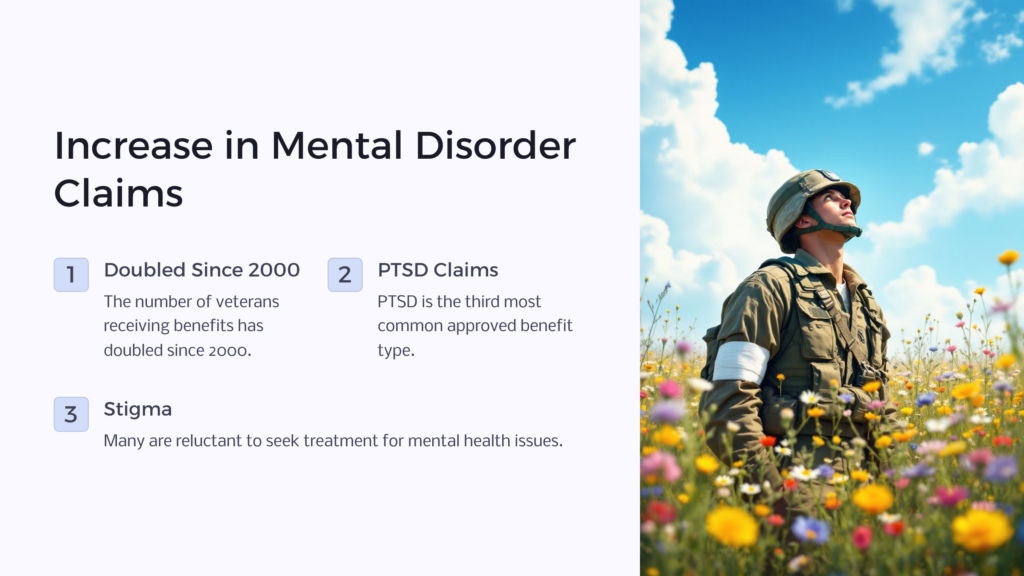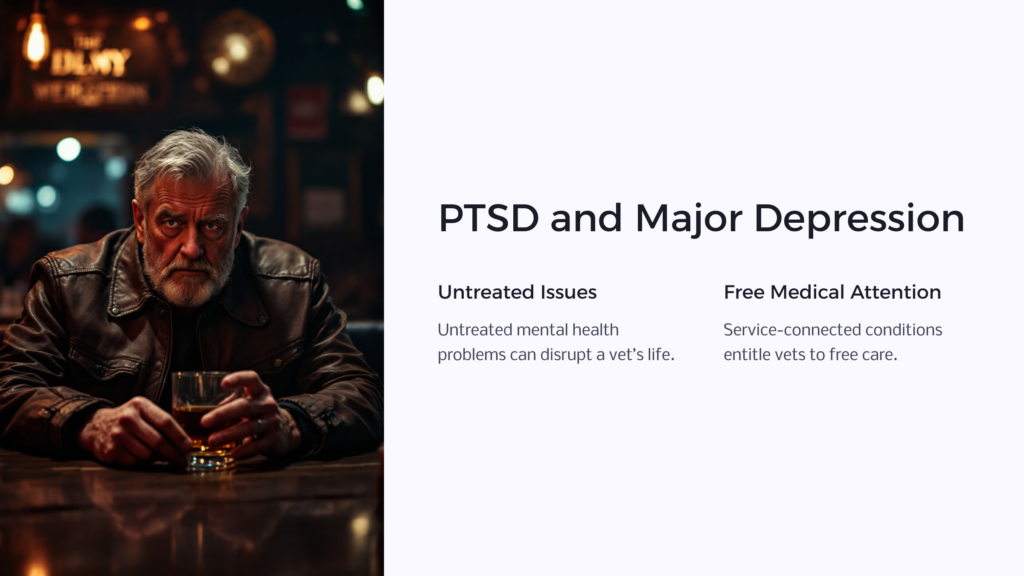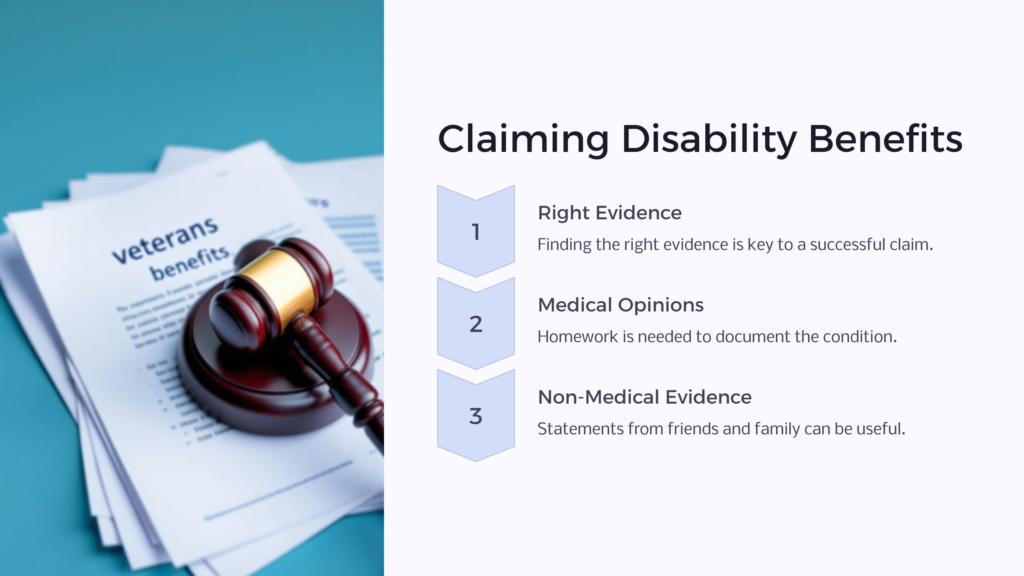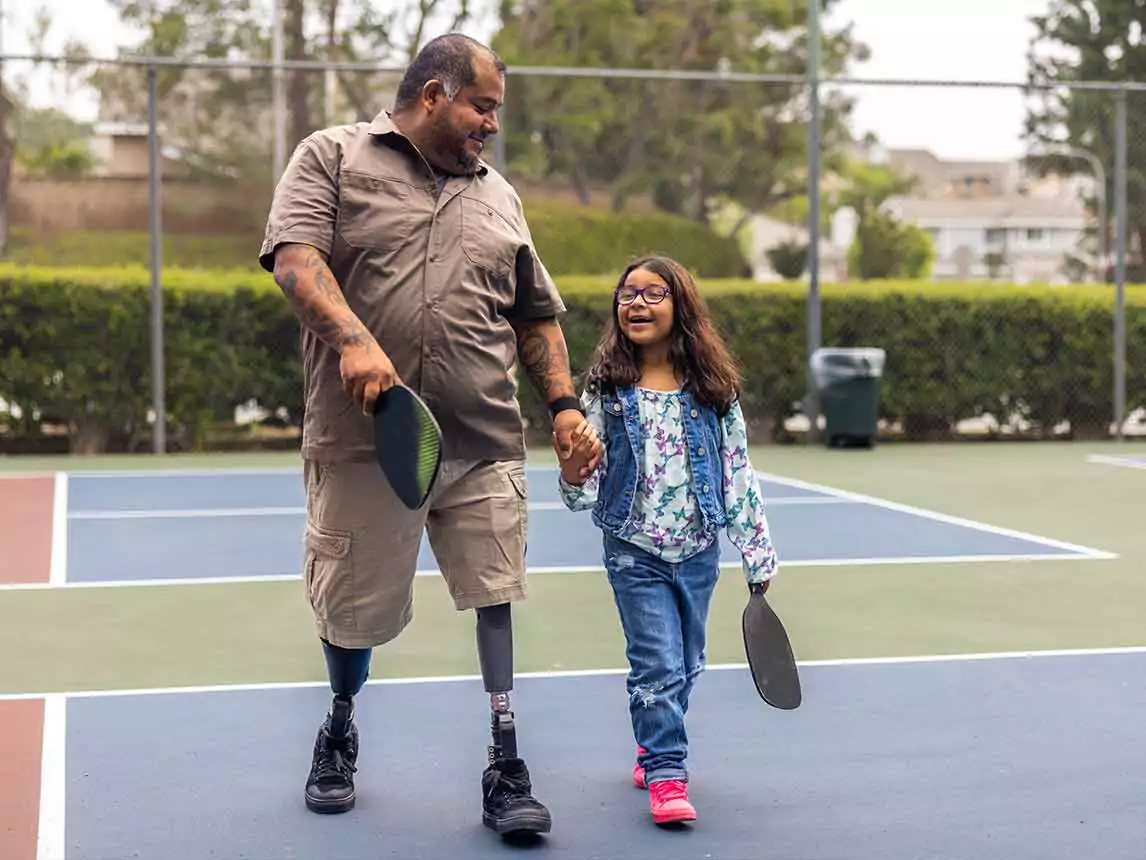More than a decade of war has left thousands of disabled American veterans, with a wide range of physical and mental conditions that affect their daily lives. In addition, many new claims are coming from vets from the Vietnam era, some with illnesses now recognized to come from exposure to Agent Orange.
The United States Department of Veterans Affairs, the second largest federal agency next to the Department of Defense, paid out $63 billion in Fiscal Year 2015 in disability compensation for 4.5 million veterans.
Number Receiving Disability Benefits for Mental Disorders Increasing

Since 2000, the number of veterans receiving disability benefits has doubled from 2.3 million to 4.5 million in 2015.
Veterans disability benefits for PTSD are the third most common approved benefit type. Learn what evidence can show PTSD or depression are service-connected, and how to document its impact on your life.
Many service members may be reluctant to seek Veteran’s disability benefits treatment for mental health issues. This may be because they worry it will affect their ability to advance in the military; it can also be due to the VA’s history of not recognizing mental health conditions, and/or underrating the disability they can cause.
PTSD and Major Depression

One study found that as many as one in five veterans returning from service in Iraq or Afghanistan reported having symptoms of PTSD or major depression—yet only about half seek treatment. But left untreated, mental health problems can eventually disrupt a vet’s life, leading to alcohol and drug abuse problems, difficulty holding down a job and causing trouble in relationships.
Veteran’s disability benefits for eligible mental health conditions are worth pursuing. If the condition is found to be service-connected, you are entitled to receive free medical attention for the problem and monthly payments, depending on the severity.
For veterans who began receiving disability payments in 2011, post-traumatic stress disorder (PTSD) was the third most common disability—behind tinnitus and hearing loss. Disability claims for mental disorders are increasing as a percentage of all claims, with the number first receiving benefits for mental conditions up 7% from 2010 to 2011. In 2011, a total of 878,000 vets were receiving disability compensation for mental disorders.
There has been an increase in PTSD claims, in part because the VA changed its evidence requirements. The VA used to require specific evidence showing exactly which events in military service caused the PTSD, but has since relaxed that requirement.
Is the stigma lessening?
Our culture still carries a stigma about mental health problems, and this may be especially true in an occupation like the military where service members are supposed to be tough and strong.
But the recent media attention to PTSD and other conditions leading to veterans committing suicide seem to have made the topic seem too important not to talk about anymore. An Australian general just published a memoir detailing his decades-long struggle with the mental and emotional problems caused by PTSD.
In his book, “Exit Wounds: One Australian’s War on Terror,” Major General John Cantwell details the emotional scars of war. He says he tried to hide PTSD for decades because he thought it would affect his career. His tours included Operation Desert Storm in the 1990s and Iraq in the 2000s. He writes, “My hope is that the story of my twenty year struggle with PTSD may encourage other veterans to acknowledge their problems and seek help.”
Claiming Disability Benefits

If the stigma against emotional problems is lessening for our veterans, when they do seek help, the VA has not always been there. Many experts agree that in the face of much criticism, the VA has in recent years made sincere efforts to improve its ability to diagnose and process mental health claims. Unfortunately, though, the huge numbers of new claims for all disabilities are swamping all efforts to get veterans timely treatment.
The key often comes down to finding the right evidence. Once you move past the challenge of showing that the condition is service connected – you then have the challenge of getting an accurate rating on your disability level. Some believe that the VA tries to reduce its backlog and move cases of anxiety and depression along by acknowledging the mental health condition, but giving it a low disability rating.
It’s also often thought that the one hour exam by a VA doctor is not adequate to fully evaluate a condition’s effects. In many cases, the veteran will need to do some homework on finding the right medical opinions to document the condition. In these cases, seeking the advice of an experienced lawyer can help you build your case.
For some mental health conditions, such as psychiatric disabilities, it can be a matter of having the right doctor evaluate and explain the diagnosis. Certain conditions can be mistakenly diagnosed as personality disorder, which is not a recognized disability.
Additional, non-medical evidence can be useful to show how the condition impairs daily functioning. Statements from friends and family close to the veterans with examples and observations of problems can help. In some cases, employment records can be used to show diminished output, fewer hours, or other negative effects. This works somewhat like a personal injury claim – to receive compensation, you have to document how the injury has affected your life. It also helps to keep a daily log of how the condition impacts your day.
The stress of finding evidence to receive veteran’s disability benefits can be a lot to handle for someone already suffering mentally from their military service. Be sure you get good advice and help. Veteran’s Service Organizations offer free help to veterans in the claim process. If your initial claim is denied, it’s a good time to get legal advice for an appeal. Most attorneys accredited with the VA will offer you a free consultation to discuss your case. If you decide to hire an attorney, most work on a contingency basis – which means you don’t have to pay them unless you win your case.
Because Post-Traumatic-Stress-Disorder is such a common result of combat, it’s very important to receive diagnosis as well as treatment from your doctor, and make your claim for disability aid from the VA.
Post-Traumatic Stress Disorder (PTSD) is a common result from combat. Learn how to make a VA disability claim for PTSD, and why you shouldn’t delay getting treatment.
The VA disability claims, and benefits paid out, for post-traumatic stress disorder (PTSD) are increasing. By 2016, PTSD was the third most common disability compensated for veterans from all wars, after tinnitus and hearing loss.
How To Receive Disability Benefits for Depression
When veterans deal with both depression and PTSD, understanding how VA disability benefits work becomes even more important. The VA recognizes that these conditions can coexist and have a significant impact on a veteran’s well-being and ability to work, but to prove a link, it’s vital to establish a service connection for both depression and PTSD.
Service connection evidence can include medical records, service records, and statements from healthcare providers/fellow service members who can attest to the traumatic events experienced during service.
Once the service connection is established, the VA will evaluate each condition separately to determine disability ratings for depression and PTSD. The VA uses the VA Schedule for Rating Disabilities (VASRD) to assess the severity of depression and PTSD. The VASRD outlines specific criteria and symptoms that correspond to different disability ratings. Factors such as the frequency and duration of symptoms, the level of impairment in daily functioning, and the need for ongoing treatment are considered in determining the ratings.
However, when a veteran has both depression and PTSD, the VA takes a holistic approach to determine the overall impact of these conditions. Rather than simply adding the disability ratings together, the VA considers the overlapping effects between the two conditions.
In some cases, the presence of both conditions may result in an increased disability rating. The VA acknowledges that the combination of depression and PTSD can exacerbate symptoms and significantly impair a veteran’s ability to function and maintain employment. The severity and interaction between the two conditions are carefully evaluated to ensure a fair and accurate disability rating.
It’s important for veterans to provide comprehensive documentation of their symptoms, treatment history, and functional impairment related to both depression and PTSD. Medical records, therapy notes, and statements from healthcare providers play a vital role in supporting the disability claim and establishing the impact of these conditions on the veteran’s life.
The likelihood of the VA denying your claim for disability benefits related to PTSD may vary. It is crucial to provide strong medical evidence and documentation to support your claim effectively and increase the chances of approval.
If a veteran’s initial claim for VA disability benefits is denied, they have the right to appeal the decision. The appeal process involves submitting additional evidence or requesting a review by the Board of Veterans’ Appeals. Seeking assistance from VSOs, accredited claims agents, attorneys, or application advisors can be invaluable during the appeals process.
 Benefits.com Advisors
Benefits.com Advisors
With expertise spanning local, state, and federal benefit programs, our team is dedicated to guiding individuals towards the perfect program tailored to their unique circumstances.
Rise to the top with Peak Benefits!
Join our Peak Benefits Newsletter for the latest news, resources, and offers on all things government benefits.



















